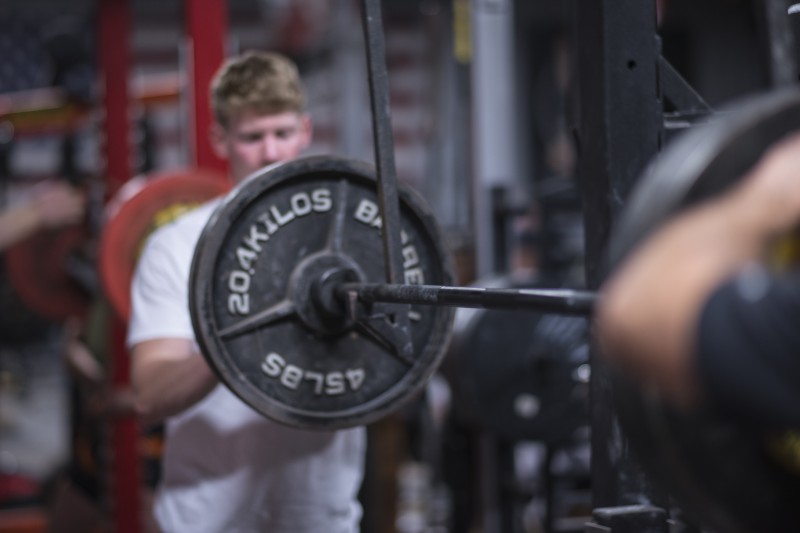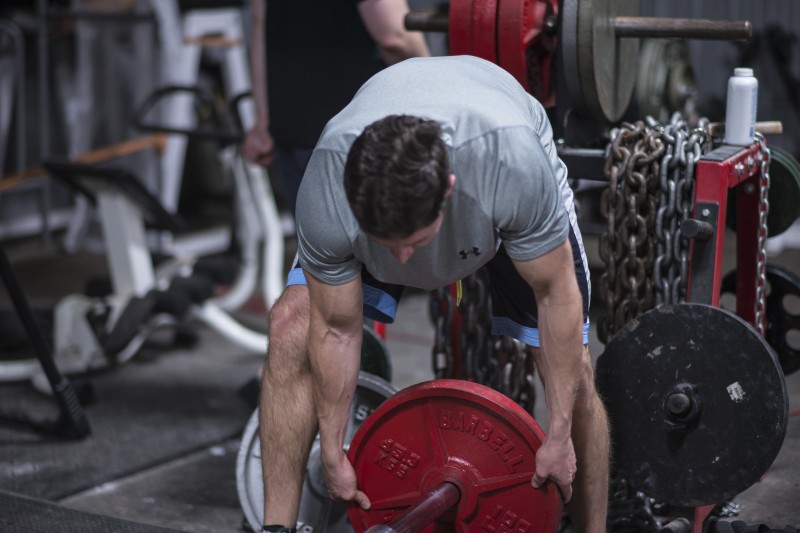
Recently I was invited to speak to my university’s leadership committee about some of the unique challenges we face on a daily basis as strength and conditioning coaches. I thought it would be a great idea for an article because things like this not only get you thinking about what you truly do but also about things you may have forgotten in the past that may be able to help you now.
Strength and conditioning coaches are the epitome of middle management. The definition of middle management from Wikipedia states that, “’Middle managers' main duty is to implement company strategy in the most efficient way. Their duties include creating an effective working environment, administrating the work process, making sure it is compliant with organization's requirements, leading people and reporting to the highest level of management.”
RECENT: We Better Get It Right — Securing the Future of S&C Before It's Too Late
I could not have said it better myself. Let me run you through a quick rundown of what our job really consists of.
The athletic director hires you. Once you sign on the dotted line, you are immediately put in charge of hundreds of athletes, and anywhere between one and 30 teams and all the coaches that go with them. You are given a weight room, staff, interns, and graduate assistant. You have to deal with administrators, trainers, nutritionists, maintenance, and facilities management. All of these people have their own ideas of how things should be done. You have to juggle all those teams’ schedules, competitions, study halls, meals, meetings, and practices to find workout times that they are all happy with.

You have to equip and maintain a safe and effective weight room, balance a budget, and make sure you and your staff are on the same page. You have to write and maintain programming for these hundreds of athletes, track their progress, and run team-specific testing protocols. You have to sell not only the athletes and head coaches on your program, but every other person on staff all the way down to the lowest intern who "lifted a little in high school.”
Once all this is done you actually get to train the athletes. The best part of your job, right? Outsiders think it is so easy. They think our athletes train like the ones they see on TV for the Olympics: lift, go to therapy, sleep eight to 10 hours, see your nutritionist, get a massage, and have no other worries in the world except training. This is not even close to reality. Let me take you through a normal workout group.
Let’s just round one workout session to 20 athletes. You have to check with the trainer beforehand to see if there are any new injuries or situations regarding their health. Let’s say three players need exercise modification for that day. Another four had a test they studied for until 2:00 in the morning. Two other players “had nothing to eat all day.” Two more hate to lift. One more is late because they had a test and they needed some extra time to finish it. That is over half of the athletes in that session who are not even close to 100%, and I am leaving out the usual “my car wouldn’t start”, “I didn’t know we were working out today even though we have been working out on that day for the past four weeks” excuses.
So you start the warm-up and notice they are all dragging. You start to get upset and start getting on them about working hard, “juice”, intensity etc., and they slowly start to respond. You only find out later that their sport coach had run them “forever” earlier as a punishment post-practice. You finally get the workout rolling; things are clicking and moving forward. If you are lucky you finish the workout on a high note in the allotted time. You go try to grab a bar or an energy drink while checking your email or texts from the trainer for any issues with the next team coming in. That is usually when the worst lifter of the next bunch comes in and says he saw this workout on YouTube and…
That is the reality we live in. Then just sprinkle in daily, weekly, and monthly meetings with coaches and administrators, trying to explain that you have to lift this team at this time, so you can’t be there to flex this team at the same time. Or explaining why you need to order so many bands every year. Or explaining why you have so much turnover at one position on your staff (because he has two masters’ degrees, won a national championship, was strength coach of the year, is married with two kids, and you pay him $22,000). Please don’t forget keeping up on social media, (gotta post that coach-assisted squat record now!).
As you can see, there are a variety of issues and situations that come up on a daily basis unique to this profession. That is why it takes unique individuals to succeed in this profession. It is not for everyone, even though every sport coach in America thinks that it is when they need to hire a GA for their sport and wants them to get paid so maybe “they can help out in the weight room."
Ahh, no. Strength coaches are strength coaches, not sport coaches. We are support staff, and no matter how much money you get paid, no matter how much responsibility you are given or how much some coaches like you, that's what we are. To be successful and master the challenges written above is where leadership comes in to separate the ones who make it from the ones who don’t. Here are some tips that I have seen over the years that will help you overcome the obstacles thrown your way.
1. Start Strong
Be a presence from day one. Don't be a jackass, but let everyone know you are there and it is going to be done your way. Change the weight room around, implement new warm-ups, staff gear, weight room cleaner, etc. Do something that is visible and tangible so the athletes, coaches, and administrators know things are going to be different.
2. Build Relationships
Get to know coaches and players as much as you can without crossing the line. Find out what they want, where they want to go, and what makes them tick — then give it to them. The secret to success is giving people what they want. If they want to be treated in a first-class manner, do it. If they want to be trained like an NFL player, do it! Hold them accountable to where they want to go and you can move mountains together.
3. Set Standards
I have said this in countless articles: set high standards and hold them to it. Touch the line means touch the line. Once you and your staff hold athletes to those standards and don’t give in, they will conform. This is the start of building your culture.
4. Build Your Culture
It is the most talked about area of sports right now, as it should be. Culture is the process that you want to follow to help your teams and athletes achieve their goals. We answer to a lot of different people, but establishing a culture of hard work, discipline, standards, and accountability in the weight room will go a long way in answering a lot of questions before they are even asked.
5. Communicate
Communication with all parties involved is imperative. Don’t take anything for granted. "I thought" or "I assumed" doesn’t cut it in this day and age. Please don’t do it all by email either. Face-to-face interaction goes a long way in this business.
6. Be Innovative
Stay on the cutting edge. Be open to new ideas. Do not do anything that goes against the culture or standards you and your staff have set, but if a sport coach wants you to add a drill or an exercise, it isn’t going to kill you. It will help you in the long run.
7. Value Trust, Care, and Commitment
This is a two-way street. Can you trust the athlete to do what they are supposed to do? Does the athlete care about themselves and the team? Are they committed to being the best they can be? The same should be asked of you. Can they trust the strength coach to do what they are supposed to do? Does the strength coach care about the team? Is the strength coach committed to being the best they can be?
If you can answer yes to all of these, you are well on your way to success!












cheers, ashley